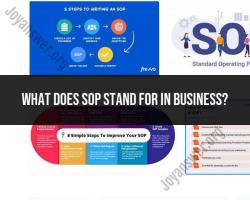What is the point of Business Ethics?
Business ethics serves several essential purposes in the corporate world:
Establishing Trust and Reputation: Ethical behavior fosters trust among stakeholders, including customers, employees, investors, and the public. It builds a positive reputation, which is crucial for long-term success and sustainability.
Ensuring Compliance and Risk Mitigation: Adherence to ethical standards ensures compliance with laws and regulations. It mitigates risks associated with legal issues, financial penalties, and reputational damage resulting from unethical behavior.
Creating a Competitive Advantage: Ethical practices can become a competitive advantage. Customers often prefer businesses that demonstrate ethical conduct, leading to increased loyalty and positive brand differentiation.
Attracting and Retaining Talent: Ethical organizations tend to attract and retain top talent. Employees are more likely to stay with companies that prioritize ethical behavior, fostering a positive work environment.
Enhancing Decision-Making: Ethical guidelines provide a framework for decision-making, helping employees and leaders navigate complex situations and make morally sound choices.
Improving Relationships with Stakeholders: Ethical behavior strengthens relationships with stakeholders, including suppliers, customers, investors, and the community. This leads to more fruitful collaborations and partnerships.
Supporting Corporate Social Responsibility (CSR): Ethical business practices often align with CSR initiatives, contributing positively to society through environmental sustainability, philanthropy, and community involvement.
Maintaining Investor Confidence: Ethical behavior and transparent practices instill confidence in investors, encouraging investment and maintaining shareholder trust.
Contributing to Long-Term Sustainability: Ethical organizations focus on long-term sustainability rather than short-term gains. This approach supports longevity and stability in an ever-changing business landscape.
Aligning Business Values with Societal Values: Operating ethically aligns a company's values with societal expectations, demonstrating a commitment to responsible business practices.
Ultimately, the point of business ethics is to create a framework that guides behavior, decision-making, and operations in a manner that prioritizes integrity, fairness, and accountability. It's not just about compliance with laws but about doing what is morally right and aligning business goals with societal well-being for sustained success.
What fundamental purpose does Business Ethics serve in organizations?
Business Ethics serves a fundamental purpose in organizations by acting as a compass, steering them towards responsible and ethical conduct. It goes beyond mere legal compliance to establish a higher standard of behavior, one that benefits not just the organization itself but also its employees, customers, communities, and the environment. Here are some key ways Business Ethics serves its fundamental purpose:
1. Building Trust and Legitimacy:
- Consumer Confidence: Businesses that consistently demonstrate ethical practices earn the trust of customers, leading to brand loyalty and market competitiveness. Consumers are increasingly conscious of ethical sourcing, transparency, and responsible product development, and those who prioritize these values attract greater support.
- Stakeholder Relationships: Maintaining trust and open communication with all stakeholders, including employees, investors, and communities, fosters collaboration and creates a more positive operating environment. By proactively addressing stakeholder concerns and demonstrating ethical commitments, organizations earn greater legitimacy and support.
2. Ensuring Responsible Decision-Making:
- Ethical Frameworks: Clear codes of conduct and decision-making tools provide employees with guidance in navigating ethical dilemmas, reducing the risk of mistakes and promoting responsible choices. Such frameworks help ensure that decisions align with the organization's values and consider the interests of all stakeholders.
- Open Communication and Whistleblowing: Organizations that encourage open communication and protect whistleblowers create a culture where employees feel empowered to raise concerns about unethical behavior. This proactive approach prevents problems from escalating and allows for timely corrective action.
3. Minimizing Risks and Long-Term Sustainability:
- Reduced Legal and Reputational Risks: Ethical practices help organizations avoid legal troubles, fines, and scandals that can damage their reputation and financial stability. By following ethical principles, they minimize risks and contribute to long-term success.
- Sustainable Practices: Integrating environmental and social responsibility into business decisions promotes sustainability and reduces negative impacts on the environment and communities. This leads to positive long-term outcomes for the organization and contributes to a more just and sustainable future.
Ultimately, the fundamental purpose of Business Ethics is to guide organizations towards behavior that is not just legal but also morally responsible. By prioritizing ethical conduct, organizations can build trust, mitigate risks, and contribute to a more positive and sustainable environment for all.
This is just a glimpse into the fundamental purpose of Business Ethics. Feel free to ask any further questions you may have about specific aspects or benefits of ethical practices in organizations. I'm always happy to help!













